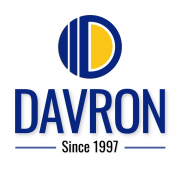As organizations become increasingly global and competitive, it has become imperative to understand change management and demonstrate the skills, competencies and knowledge necessary to maximize success and productivity. Change management includes planning and managing transitions and managing the impact of organizational changes. When interviewing for positions related to change management, employers will likely ask behavioral interview questions to assess your suitability for the position.
Understand the basics of change management
Change management is a discipline focused on preparing and supporting people and organizations to adapt or manage change. This includes activities such as assessing organizational needs, planning change, communicating the benefits of change, and providing support during the transition period. Change management is a complex process that requires patience, dedication, and strong interpersonal skills. It is important to be able to articulate how these skills can be used to implement changes in a professional manner.
When implementing change, it is important to consider its impact on the organization. This includes an understanding of the potential risks and benefits associated with change and the resources required to make the change successful. It is also important to consider the impact on employees, customers and other stakeholders. Change management should be used to ensure the transition is as smooth as possible.
A clear understanding of change goals and objectives is critical to successful change management. This includes understanding the desired outcome, timeline for implementation, and the resources required for success. It is also important to have a plan for monitoring and evaluating the progress of change. This will help ensure a successful change and address any issues quickly.
Preparing Change Management Interview Questions
From an employer’s perspective, a solid understanding of change management fundamentals is critical to being successful in a change management role. Therefore, it is important to be prepared in advance to answer questions that may be asked during the change management interview. Researching the organization and the role you are interviewing for is a great first step to understanding and preparing potential questions. A deeper understanding of the changes required for organizational success can help answer questions about how change is approached and managed.
It’s also important to be prepared to discuss your experiences with change management. Be prepared to discuss any projects you’ve worked on that involve change management and how you’ve successfully implemented change. Additionally, be prepared to discuss any challenges you faced and how you overcame them. This proves to interviewers that you have the necessary skills and experience to perform change management within an organization.
Finally, it’s important to be prepared to discuss your organization’s vision. Be prepared to discuss how to approach change management within your organization and how to ensure successful change. Additionally, be prepared to discuss strategies for ensuring that the changes are accepted and implemented by your organization’s employees. This demonstrates to the interviewer that you have a clear understanding of the organization’s needs and how to successfully manage change.
Frequently Asked Behavioral Questions About Change Management
Common behavioral questions about change management include, but are not limited to:
- Describe a situation in which you successfully managed the migration.
- What steps did you take when faced with major organizational changes?
- Tell me about a time when you had to take charge of a project involving many stakeholders.
- Describe a time when you had to break difficult news to a stakeholder.
- How are you managing difficult times during the transition period?
Being able to demonstrate an understanding of the importance of change management in the workplace is also important. This includes being able to explain the benefits of change management, such as increased efficiency, better customer service, and improved employee morale. Additionally, it is important to be able to discuss change management challenges such as resistance to change, communication issues, and the need for ongoing training and support.
Tips for Answering Behavioral Interview Questions About Change Management
When answering behavioral questions about change management, it is important to have a systematic approach to providing quality answers. Try using the STAR method (situation, task, action, outcome) or the CAR method (challenge, action, outcome) when crafting your answers. Describe the specific situation or challenge presented, what steps you took to solve the problem, how you took action, and the successful outcome of that action.
It is also important to demonstrate the ability to think critically and strategically when answering change management questions. Demonstrate your problem-solving skills and explain how you identified the root cause of the problem and developed a plan to address it. Additionally, be sure to highlight your success in implementing the change and how it positively impacted your organization.
How to demonstrate understanding of change management
It is important to differentiate yourself from other candidates by demonstrating familiarity with the change management process. We provide examples of successful implementations we have been involved with in the past and lessons learned. Describe the process you used to manage the various stakeholders and how you overcame obstacles. Make sure you emphasize that you understand the complexities of change management and why it is essential in today’s organizations.
When you talk about your change management experience, emphasize the strategies you used to ensure a successful implementation. Describe the steps you took to ensure that your changes were accepted and effectively implemented. We also discuss the importance of communication and collaboration when managing change. Describe how you worked with the various stakeholders to ensure everyone was on the same page and that the changes were implemented smoothly.
Demonstrate ability to adapt to change through interview responses
As companies move into an ever-changing environment, it’s important to demonstrate their ability to adapt to change in a positive way. Tell us about a time when you were able to adapt or learn new processes quickly and effectively. Additionally, emphasize your ability to effectively evaluate different solutions and determine which one is best for your organization.
Example Answers to Behavioral Interview Questions About Change Management
If you are likely to be asked questions about change management in an interview, it is important to be prepared. Below are some sample responses that include all elements of the STAR approach.
- situation: I was tasked with launching a new software system across the organization to streamline workflow processes.
- task: We needed to make sure the deployment was successful and disruption was limited.
- action: I created an implementation schedule, communicated regularly with stakeholders, and provided ongoing training to employees as needed.
- result: The software was successfully deployed with minimal disruption and employees quickly adapted to the new workflows.
Strategies for Overcoming Challenges in Managing Change
Successful change management requires developing a strategy to overcome common challenges during the transition period. These strategies include:
- Good communication: Communication of expectations, schedules and goals is essential for successful change management.
- Team involvement: Involvement of key stakeholders ensures that everyone is working towards a common goal.
- Recognize Success: Acknowledge your successes along the way and let everyone know your contributions are appreciated.
- Active efforts: Proactively address potential problems before they arise.
What Employers Look For When Asking Behavioral Interview Questions About Change Management
Employers are looking for candidates who understand change management, can demonstrate the ability to effectively implement change, and manage stakeholders. They are looking for candidates who are knowledgeable about the intricacies of change management in a variety of contexts, can communicate goals and expectations, and have a track record of successful implementations.
Benefits of an Effective Change Management Strategy
Adopting an effective change management strategy can help an organization adapt better to changing market conditions and remain competitive. Other benefits include:
- Improved efficiency: Implementing change increases efficiency, productivity, and employee engagement.
- Improvement of quality: Strategies that optimize existing processes enable teams to produce higher quality work in less time.
- Enhanced employee development: Change management initiatives provide employees with new skills and help develop their professional competencies.
- Reduce costs: Optimizing processes reduces costs and increases profitability.
Harnessing the Power of Transformational Leadership in Change Management
Organizational transformation often requires strong leadership from both managers and employees. Transformational and effective leaders inspire others by taking the initiative, communicating proactively, and taking responsibility for their actions. These leaders are often adept at motivating employees to implement meaningful change faster than traditional management styles.
Tips for making a positive impression in a behavioral interview about change management
- Do your research: Researching the organization beforehand will help you demonstrate your knowledge of the organization’s goals and objectives during the interview.
- Be prepared: If possible, prepare a portfolio highlighting the specific implementations and significant changes involved.
- Be confident: Remember that you have valuable experience that will help this organization succeed. Answer with confidence.




